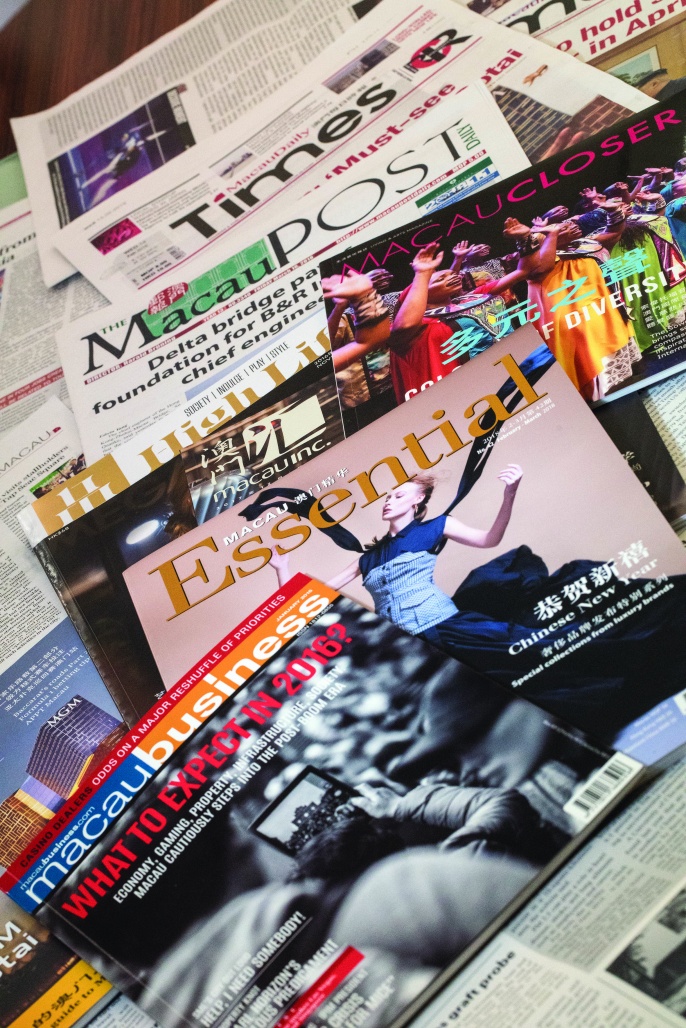
Macau Business | November 2023
Keith Morrison – Author and educationist
Macau wisely looks to mainland China, South-East Asia, and Portuguese-speaking countries, as part of its economic diversification. However, to be a player on the international stage and world-wide market, it must look wider, and, hence, the standard of English in Macau must improve dramatically and urgently. There is nothing new here; it has been said for decades, but, with a few exceptions, the persistent problem of hopeless English in Macau obstructs Macau’s international development. Ask university teachers in Macau about the standard of many Macau students’ English; the honest ones will tell you that it is awful and is worsening. Many Macau students cannot write and speak a single sentence or even a single phrase in correct English upon entry to tertiary institutions.
Macau can ill afford to ignore the need for fluent English. This is not linguistic imperialism; rather, it is the promotion of necessary linguistic capital, i.e. proficiency in a high-status, world-wide language that is used by groups with economic, social, cultural, and political power in local and global societies. Put simply, linguistic capital can promote economic capital. Fluency in English offers students access to better life chances, with powerful and long-lasting effects on careers, and it offers benefits to Macau’s economy and, thereby, its society: micro and macro benefit. Insisting on high quality English in Macau is neither special pleading nor ideology; it is a commonplace platitude in pragmatic Macau. ‘Nothing new there’, you say, so why does English continue to be so poor in Macau?

Macau owes it to its students to insist on high standards of English. Schools and tertiary education institutions in Macau have a moral duty to ensure that their students can work with English at an international standard. Yet what do we see: supposedly English medium universities and English medium strands in Macau schools teach in Chinese when they say that they teach in English, and English teachers in Macau’s schools use ineffective teaching strategies. Further, secondary schools in Macau pass and graduate their Form 6 students, thereby giving them university entrance, a compulsory component of which is proficiency in English, yet the students’ English is pathetic, virtually non-existent.
If students’ English is awful, despite 15 years of English at school, then their English performance must be failed. However unpleasant, this is a moral responsibility that Macau schools should uphold, but many do not; why not? Why such recalcitrance to act honestly? Forget about Macau’s Joint Admission Examination in English for four of Macau’s tertiary education institutions; almost no notice seems to be taken of its results, even though Macau schools spend months drilling their students for it. Macau’s schools and tertiary institutions must not continue their quiet, collusive neglect of this major element of internationalisation, diversification, globalisation, and economic development. They must be honest: if students do not meet a decent standard, then they fail. Macau’s schools must stop graduating students who are incompetent in English, e.g. raising marks so that students pass, when English is a requirement for graduation. That is dishonest and immoral.
For Macau to flourish, it needs a rich multiglossia. This means that students must reach external, international English standards, not the low, internally set standards that so many of its schools far too readily credentialise. For decades we have had study after study of students’ poor motivation to learn English in Macau, their lack of exposure to English outside school, archaic teaching strategies in school, and the irrelevance of English in many walks of life in Macau. These are insufficient excuses. External, international standards of English are absent in many Macau schools, and they get away with low standards. Why not compel Macau’s secondary schools to have English examinations that are set and marked by external, internationally accredited examination boards, with internationally prescribed curricula, which only a handful of schools in Macau currently do? Importantly, why not ensure high stakes consequences of failure in English performance at school?
None of this is new. It is history, yesterday’s news, an endless restatement of the blindingly obvious, but the problem remains. English does not threaten Macau’s official languages, nor diminish Putonghua, nor threaten Chinese culture and language. Why is so little happening?
























